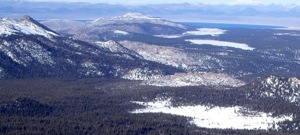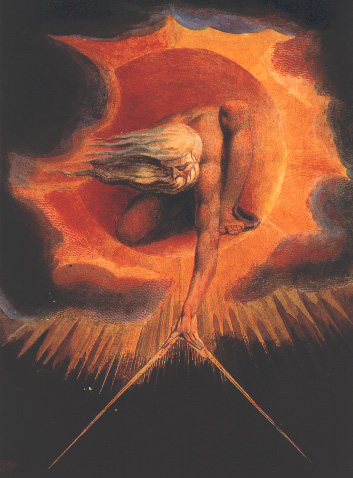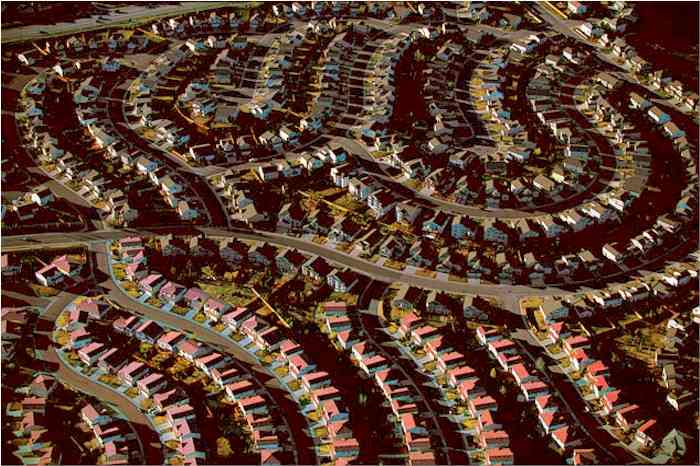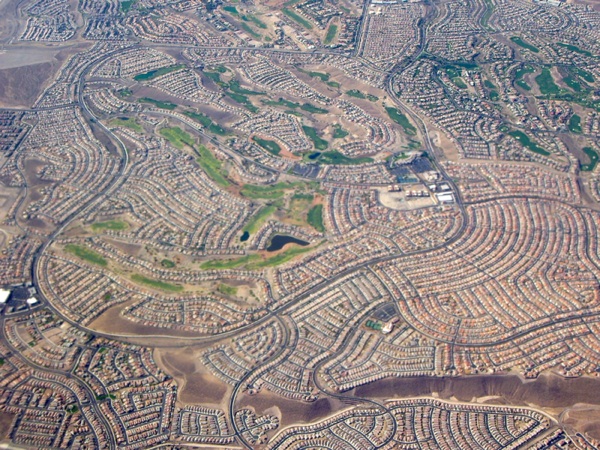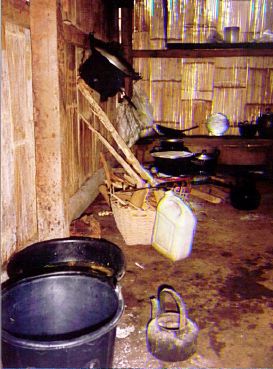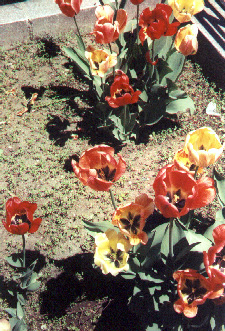 Meaning
in Technology
Meaning
in TechnologyNavigating the site:
 Arnold Pacey, a physicist looking at tool making, use, and influences.
Arnold Pacey, a physicist looking at tool making, use, and influences.
How important are the settings of places we alter by tool use?
Chapters: 5. The Sense of Place
II. Contexts of Technology: Nature, People, and Conflict.
The situations & circumstances of tool use, Conflict, Gender, and Nature.
thesis | relationship | politics | nature | conclusion
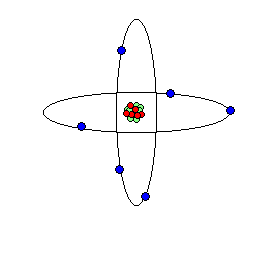
Related Chapters in Part II:
- 6) Exploration, Invention and the Remaking of Nature.
- 7) Gender and Creativity
- 8) Knowledge Pregnant with Evil
1) nature, the physical, chemical, & biological intersection
A. Hobbes “war of all against all”
B. Rousseau’s positing of virtue in and from nature
C. Locke’s “state of nature" as a contract to controlMono Lake from the Eastern Sierra Nevada mountains.
2) second nature, Plato’s belief that nature is incomplete
A. humans complete the –as yet unformed—reality of existence.
B. Emerson: soul and Oversoul conjoin in humans to tie us back to the universal stimulus or spirit inherent in the universe according to the Transcendentalists.
William Blake's woodcuts of the Platonic Demiurge using a compass creating the world and God fashioning Adam, human life.
Pacey's dichotomy lies in what he sees as a tension between two impulses.
Twin impulses in natural responses of humans to places:
1. pleasure and excitement in making things
2. impulses to improve the human condition
Two ways to assess the value of nature:A. the intimate dialogue of Michael Faraday
1. without knowledge of calculus he revealed the way in which electricity behaves and is controlled.
2. created a visual means of intimately expressing the unseen power of electrical current, amperage and volts, in terms analogous to water.
B. Cost benefit analysis – is actually an arms distance approach in that quantities are assigned to objects and then cross comparisons are made.
We find our personal, social and ethnic identities in whole or in part in relation to places, either sublime or desecrated – created or re-created places that have emotive pull or psychic draw for us.
There is also the concept of de-created, or lost places.
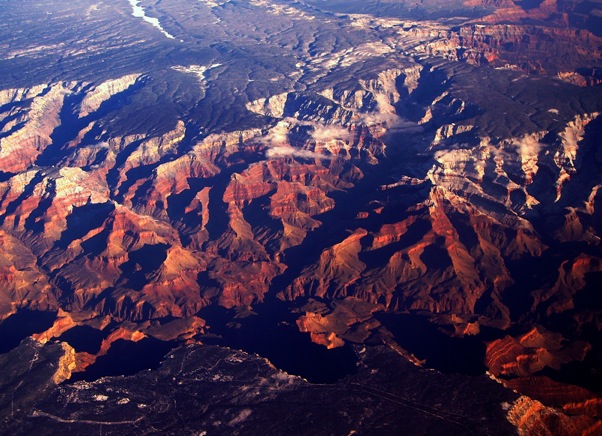
The Grand Canyon, Arizona.
Cecil Rhodes monument in the Matopo Hills, Zimbabwe.
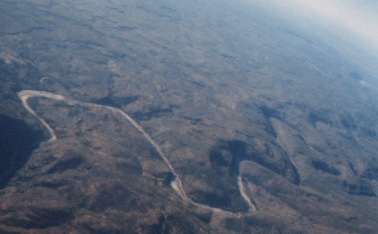
“The site illustrates two kinds of meaning
1. The sense of nature
2. The feeling of invitation

A story of the Chinese monkey at the edge of the universe, marking his territory
by urinating on the five boundary columns that marked that boundary.
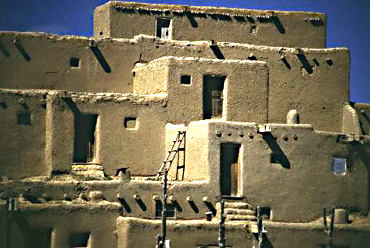
Sangre de Cristo range of SW USA: Taos, New Mexico “took refuge.” Anasazi, or Puebla [not Navajo country]
“Journada de los muertos”
in Spanish is translated as the journey of death in English.
“The irony is that...this place of escape became the setting for the most ambitious effort hitherto for wresting nature’s ultimate forces from her control,...”
The development and initial testing of the fission explosive called the Atomic Bomb (a-bomb).
Los Alamos, White Sands and the atomic bomb burst of July 18, 1945.
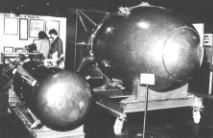
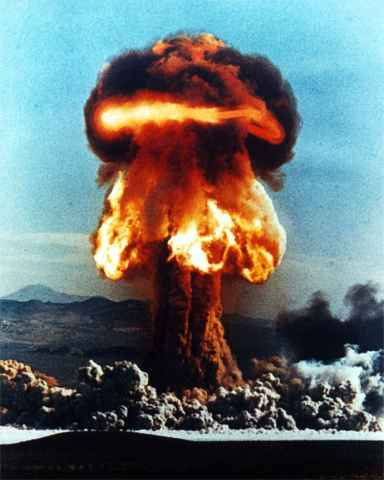
The initial two American made atomic bombs and their destructive display.
page 103.
Many more people feel far more threatened by the prospect of environmental catastrophe (see Don DeLillo & C.P. Snow), and. . . . this threat may be considerably more serious than most commentators admit.”
page,104.
“Others seem to have turned their back on nature altogether to live in an electronically mediated world.
"It is in those world’s we are now expected to locate our sense of place.”
“The new lifestyle provides many opportunities for making money on
a grand scale, and much of that money translates into power over the shape
of the electronic worlds now coming into being.”
122.
“This way of treating the environment is characterized as 'de-creation' by Hamilton Paterson, who describes an island in the Philippines that Japanese companies have de-created to make into a holiday resort served by helicopters, hydrofoils, and high-tension lines."
“discusses it with immense feelings of loss.”
"Contact with landscape and nature that once contributed meaning to people's lives is drastically reduced."
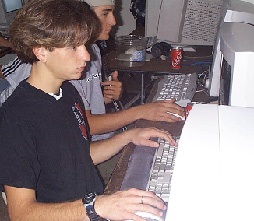


“the digital revolution, . . . demands that we should ‘move indoors to renounce the external world,’ because technology is now seen as the 'new nature' with virtual reality (VR) regarded as more exciting, more 'real' even, than what is dismissively denoted as RL (for real life).”
“But people are also withdrawing indoors 'because the world outside our homes has less and Iess to offer,' due to the decline in the quality of life. . . ."
p. 122.
I think you can barely distinguish Denver's from Las Vegas' suburbs in the photographs above.
"Familiarity makes you feel everywhere at home. A sense of time makes you gradually increase your speed."
John B. Jackson, A Sense of Place; A Sense of Time, pp. 152-153.
Politics
“I believe that political analysis, which is absolutely essential,
needs to be complemented by an understanding of how individuals experience
the environment.”
See: The Political Mind
104
“how they experience landscape”
or “how they feel about marking the landscape,...by constructing
dams, and irrigation systems, or bridges and highways.”
105
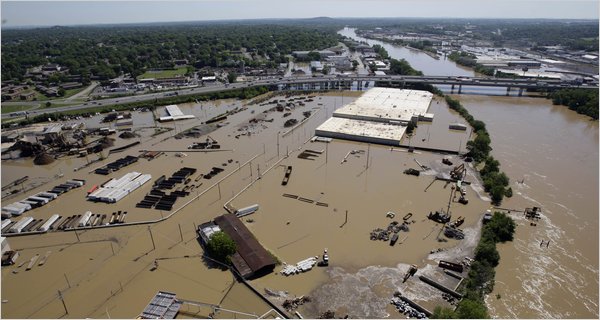
Nashville flooding in 2010 along the Cumberland River part of the TVA,
the most controlled river system in the Southeast.
“it has become clear that all this wonderfully transcendent purposiveness
is often out of step with social purposes that need to be addressed.”
page,106.
“paradox of what is valuable in science and technology, and what
seems to betray its social meaning”

Public is ambivalent about technology:
virtuosity and discovery are respected but there is skepticism over alleged
social benefits
Intimacy with nature vs. alienation from nature:
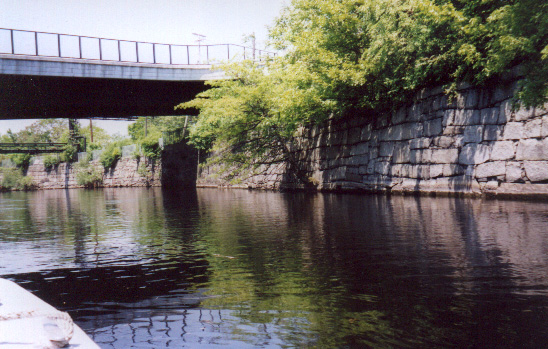
Lowell, Mass. canal whose waters once powered extensive textile mills.
A. Barbara McClintock, Edward O. Wilson vs. David Lillienthal, Werner Von Braun.
A. Part of
Humans are intimate agents in nature affecting the outcome of the game
B. Apart from
Humans stand aside, apart from the world they describe and plan to mark
Seeing Nature as a common interdependent experience
1. nature is a genetic craps shoot
2. nature is complex relations among responsive, resilient and replenishing features
3. is a losing situation for human endeavors due to inverse relation of benefits to shared costs, inevitability of commonizing costs and privatizing profits:+ 10 benefit versus - .1 cost
Cost benefit analysis removes us from the immediacy of nature – yet,
all the same-- we still participate in nature, not as bystanders but as
affective ingredients in a game.
Arena the bounded setting in which a game is played for a limited time.
Conclusion
- Feedback is an essential characteristic of all animals responses to their surroundings. Feedback is a dynamic relationship in that a response can either reinforce (positive feedback) or counter (negative feedback) the stimulus any creature receives from its native milieu or ambient conditions.
- Technology is an active instrument or practice used to modify the positive or negative feedback responses humans have with respect to their surroundings.
- Technology has its own dynamic qualities partially derived from nature and partially dictated by how its parts function to both modify the user and the conditions in which tools are used to solve problems.

Meaning in Technology, 2001 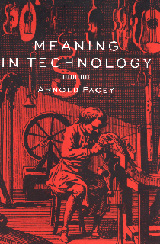
Arnold Pacey Table of contents cover
Pursell | Pacey–World | Postman | Tenner |Pacey–meaning| Eberhart | Snow | Kaku
Tools of Toil: what to read. Tools are historical building blocks of technology.

